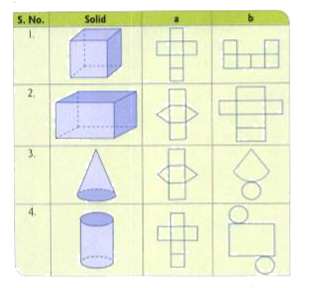Select the correct answer from the choice in bracket to complete each sentence: A soluble solid is separated from an insoluble solid by ________ [fractional crystallisation/ solvent extraction]
To solve the question, we need to determine the correct method for separating a soluble solid from an insoluble solid. The options given are fractional crystallization and solvent extraction.
1. Understanding the Terms:
- A soluble solid is a solid that can dissolve in a solvent (e.g., salt in water).
- An insoluble solid is a solid that does not dissolve in a solvent (e.g., sand in water).
2. Identifying the Mixture:
- Consider a mixture where one solid is soluble in a solvent (like sodium chloride in water) and the other solid is insoluble (like barium sulfate in water).
3. Choosing the Right Method:
- To separate a soluble solid from an insoluble solid, we can use a method that allows the soluble solid to dissolve while the insoluble solid remains undissolved.
4. Applying the Method:
- When we add water to the mixture, the soluble solid (sodium chloride) dissolves, while the insoluble solid (barium sulfate) does not.
- We can then filter the mixture. The soluble solid will be in the filtrate (the liquid that passes through the filter), and the insoluble solid will remain as residue on the filter paper.
5. Final Steps:
- The filtrate (which contains the dissolved soluble solid) can then be evaporated to remove the solvent (water), leaving behind the soluble solid (sodium chloride) in solid form.
6. Conclusion:
- Therefore, the correct answer to the question is that a soluble solid is separated from an insoluble solid by solvent extraction.
Final Answer:
A soluble solid is separated from an insoluble solid by solvent extraction.
- A soluble solid is a solid that can dissolve in a solvent (e.g., salt in water).
- An insoluble solid is a solid that does not dissolve in a solvent (e.g., sand in water).
- Consider a mixture where one solid is soluble in a solvent (like sodium chloride in water) and the other solid is insoluble (like barium sulfate in water).
- To separate a soluble solid from an insoluble solid, we can use a method that allows the soluble solid to dissolve while the insoluble solid remains undissolved.
- When we add water to the mixture, the soluble solid (sodium chloride) dissolves, while the insoluble solid (barium sulfate) does not.
- We can then filter the mixture. The soluble solid will be in the filtrate (the liquid that passes through the filter), and the insoluble solid will remain as residue on the filter paper.
- The filtrate (which contains the dissolved soluble solid) can then be evaporated to remove the solvent (water), leaving behind the soluble solid (sodium chloride) in solid form.
- Therefore, the correct answer to the question is that a soluble solid is separated from an insoluble solid by solvent extraction.
A soluble solid is separated from an insoluble solid by solvent extraction.
Topper's Solved these Questions
- ELEMENTS, COMPOUNDS & MIXTURESBOOK - ICSECHAPTER - ELEMENTS, COMPOUNDS & MIXTURESEXERCISE - OBJECTIVE TYPE QUESTIONS (Elements, Compounds & Mixtures)
17 Videos
- ELEMENTS , COMPOUNDS AND MIXTURES BOOK - ICSECHAPTER - ELEMENTS , COMPOUNDS AND MIXTURES EXERCISE - Think and answer
3 Videos
- ELEMENTS, COMPOUNDS AND MIXTURES BOOK - ICSECHAPTER - ELEMENTS, COMPOUNDS AND MIXTURES EXERCISE - EXERCISES (Very short answer questions)
10 Videos
Similar Questions
Select the correct net for each solid:

View SolutionSelect the correct answer from the choice in bracket to complete each sentence: An example of a monoatomic molecule is _______ [hydrogen/helium).
View SolutionSelect the correct answer from the choice in bracket to complete each sentence: Dust in air is an example of________ [heterogeneous/homogeneous) mixture.
View SolutionSelect the correct answer from the choice in bracket to complete each sentence: The reactive element from the two monoatomic elements is _______ [neon/silicon].
View SolutionSelect the correct answer from the choice in bracket to complete each sentence:-
An element Z with zero valency is a — [metal/noble gas/non-metal].
View SolutionSelect the correct answer from the choice in bracket to complete each sentence.
Dissolution of lead nitrate in water is deemed as a - [physical/chemical] change.
View SolutionSelect the correct answer from the choice in bracket to complete each sentence:
The gas which has now replaced hydrogen in air balloons is _____________[argon, helium, neon].
View SolutionSelect the correct answer from the choice in bracket to complete each sentence:-
A- [proton/neutron] is a sub-atomic particle with no charge and unit mass.
View SolutionSelect the correct answer from the choice in bracket to complete each sentence.
Matter is added or removed during a - [chemical/physical] change
View SolutionSelect the correct answer from the choice in bracket to complete each sentence.
A change in which a substance retains its identity is a — [physical/chemical] change
View Solution
